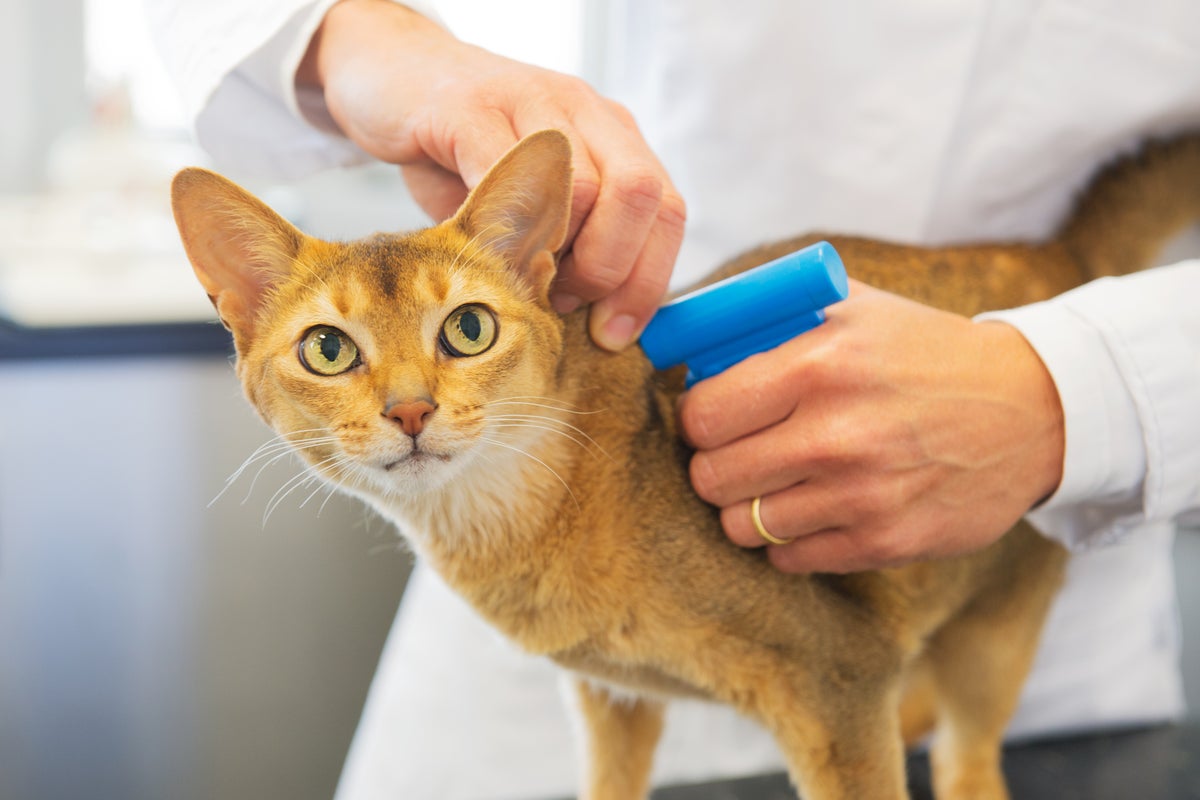
All cat owners should now have their pets microchipped with new legislation coming into force on June 10, with millions facing £500 fines for now.
It comes as an animal charity said more than two million cats in England are not microchipped.
From Monday, it will be mandatory for every pet cat in England to be chipped before the age of 20 weeks.
Ministers hope the scheme will help reunite thousands of lost pets with their owners and deter pet theft.
But of the estimated nine million pet cats in England, up to 2.2 million are still not chipped, according to data from the charity Cats Protection.
Microchipping is not compulsory for free living cats that live with little or no human interaction or dependency, such as farm, feral or community cats.
Owners found not to have microchipped their pet will have 21 days to have one implanted or face a fine of up to £500.
According to Cats Protection research, more than one in four owners (26%) who have failed to microchip said it was because their pet does not venture outdoors, and about one in seven (14%) said their cat was identifiable by its collar.
It usually costs between £20 and £30 to have a cat microchipped by a vet, the charity said.
Madison Rogers, head of advocacy, campaigns and government relations for Cats Protection, said: “Some owners think they are never going to go through the trauma of losing their pet cat, but in the last year 115,000 pet cats in England went missing and never returned home.
“Cats are nimble and extremely agile and can easily slip out without us noticing.
“Many lost cats live a frightening life on the streets. No food, no water, no shelter, no veterinary care and constantly at risk of severe injury or death from many hazards such as cars and wild animals.
“Collars can easily drop off, become damaged so that the address details become unreadable and, if they are not quick release, can become snagged on obstacles like tree branches, causing injuries to the cat.
“A microchip is safe, stays with your cat for its lifetime and is linked to contact details that are stored safely in a database.”
Alice Potter, cat welfare expert at the RSPCA, said: “We have seen cats coming into our care who are sadly not microchipped and may never be reunited with their owners.
“On average, 11% of all cats coming into the RSPCA’s care are still not microchipped.
“We’ve also rescued cats who have been microchipped but the details haven’t been kept up to date, which is arguably even more frustrating as it means cats spend a long time in our care whilst we fruitlessly try to contact the owner with out-of-date information.
“However, we’ve also seen countless stories of cats that have been reunited with their owners thanks to a tiny microchip – showing what this change of legislation will achieve for animal welfare.”
Nutmeg, a cat owned by Sandra Sinclair, a teacher from Tooting in south-west London, was found wandering the streets of Ascot in Berkshire, 30 miles away from home, after going missing.
The feline was reunited with his family after his microchip was scanned by Cats Protection.
Ms Sinclair said: “We have no idea how he got to Ascot. Did he jump into a delivery van or maybe someone attempted to steal him because he was so friendly?
“Only Nutmeg will ever know, but my family and I are just so relieved we had him microchipped.”







